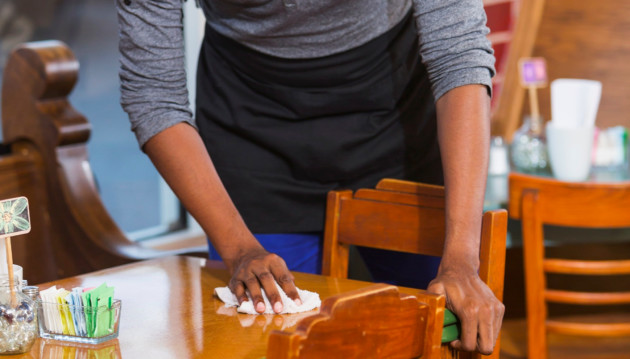
Industry reacts to reopening guide
The green light for the hospitality sector to reopen was met with relief, as was the reduced social distancing measure that saw 2 metres become 1 plus, with both announcements welcomed across an industry desperate for some positive news.
The government’s reopening guide for the hospitality industry, released yesterday, has also by large been welcomed as a “step forward”, but also been criticised for lacking clarity, while others are seeing this lack of stringent rules as a bonus.
UK Hospitality was quick to applaud the “flexibility” of the guide, with CEO Kate Nicholls saying: “It is reassuring that the government has understood the need for flexibility, demonstrating that it has listened to businesses. The guidance is pragmatic and should provide venues with enough versatility to suit their own unique circumstances. This is exactly what was needed to avoid restricting venues and making the job of reopening even harder.”
However, while agreeing that the guidelines are “a step in the right direction”, David Gleave MW, MD of Liberty Wines, referred to the 43 page guide as “long and riddled with inconsistencies”, as others, such as restaurateur Jeremy King of Corbin & King, have also pointed out.
Said Gleave: “Still, it is a step forward and means that some of our customers will be able to open on 4 July or soon afterwards. That is to be welcomed, as it is the first piece of good news the hospitality industry has had in over three months.”
At the opposite end of the spectrum, London Union's Jonathan Downey urged outlets “desperate for more clarity” to let it go.
“There will be some reading the guide that will be desperate for more clarity. Resist this. Just leave it please. We like grey areas. We love vague. We can work within and around anything that isn’t clear," he said, pointing to Tronc.
“Remember Tronc? That was all fine and included in the JRS [job retention scheme] until people started to question and meddle, and it cost our industry tens of millions.”
Downey added that he did not think his 1,000-capacity Dinerama site would open “just yet”.
“Even with 400 seats, that’s still 600 standing and, although not strictly prohibited, if busy, would be against the spirit of the relaxation measures. I think we’ll wait a week or three and see how things work out.”
Going forward, Nicholls emphasised that it was now going to be on businesses and customers to “exercise some responsibility and ensure that the guidance works optimally”.
“Venues are acutely aware of the need to build up trust and consumer confidence, and make customers feel safe in their venues. Looking after our guests is the hospitality sector’s modus operandi, so we have plenty of experience in taking care of customers and I am confident we can rise to this challenge,” she said.
Gleave added that from the point of view of the wine industry, “we will still struggle to visit producers, or have them visit us, while the wholly illogical quarantine regulations are in place”.
“We are the country with the highest number of new cases each day in Europe, yet we want people who are visiting the UK from countries with numbers that are sometimes 90% lower than ours to quarantine. It just doesn’t make sense,” he said.
Having worked closely with the government to ensure that guidance was “workable and effective in mitigating risks”, UK Hospitality is now set to turn the discussion to “how we can begin to open up other parts of the hospitality sector to make the reopening of our economy a success”, said Nicholls.




